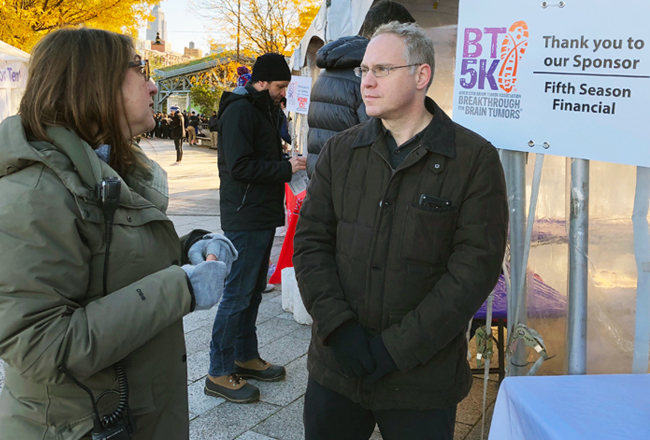Stamford’s Fifth Season Financial offers insurance policy-based loans for those with advanced-stage illnesses
The stories of patients with life-threatening medical conditions and their families exhausting their assets to pay the bills are all too common.
But Stamford”™s Fifth Season Financial has made a difference for some 400 patients with advanced-stage illnesses through an oft-overlooked asset: their existing life insurance policy.

“It might be different for the wealthy,” said Fifth Season President Adam Balinsky, “but for middle-income, even high middle-income families, when one of the breadwinners has to go on disability, they earn only a fraction of what they had been getting. And their traditional assets ”” their stocks, 401(k), even their house ”” get eaten up until they run out of options and have nothing left, really, to help them.”
According to the National Cancer Institute, depending on the type of cancer and insurance coverage, anywhere from one-third to over three-quarters of cancer survivors exhaust their savings to finance medical expenses, which can cost tens of thousands of dollars per month.
Balinsky ”” who acquired the firm in 2012 after having served on its board as a representative of now-defunct Greenwich hedge fund Plainfield Asset Management, which was Fifth Season”™s principal lender ”” set about transforming the company from providing standard loans to cancer patients to its current model: The Funds for Living and Giving (FLAG) Program.
Playing a role in creating FLAG was a breast cancer scare that his wife Tracey had shortly after the family relocated to the U.S. from Canada in 2007.
“As Canadians, we were used to the kind of socialized medicine and Medicare programs they have there,” Balinsky said. “But when she was diagnosed we still didn”™t really know what the options were here, whether we had the right coverage and what its costs would be.”
Further research revealed the general lack of financial support for patients facing such potentially devastating futures. (His wife, he said, happily continues to do well, thanks to early detection of her condition.)
To qualify for FLAG, a person must have an existing life insurance policy worth a minimum of $500,000 or, for group policies, $100,000 and a physician-verified, advanced-stage illness, which Fifth Season defines as a condition whose average life expectancy is under seven years.

Fifth Season will advance up to the face value of the life insurance policy ”” Balinsky said some clients take less, while others elect to split the face value-based loan into parts ”” after which the company makes all premium payments, providing immediate financial relief to the client and their family.
The life insurance policy remains in place despite partaking in the FLAG program. All advances, interest, origination fees and premium payments are repaid to Fifth Season out of the policy’s death benefit, with the remainder going to the policyholder”™s designated beneficiaries. Balinsky said that in about 92 percent of cases, funds remain to pass on to those beneficiaries.
“It”™s a standard loan document and we”™re very transparent,” he said. “We don”™t look at credit scores or bankruptcies, stuff like that. We collect their medical records and work with our internal doctors to determine life expectancy to come up with the loan”™s terms. We show the client what their surplus will be at any given time.”
Balinsky said the monies that are loaned can be used for anything, including medication, visiting nurses, groceries, household bills or even trips “to make memories with their families while they still can.”
The FLAG program has provided more than $120 million in loans to qualifying individuals, he added.
“A lot of what we do revolves around quality of life,” Balinsky said. “You can start to lose that very quickly without adequate financial support. We can provide the money to maintain quality of life and help people take advantage of their chosen lifestyle while they still can.”